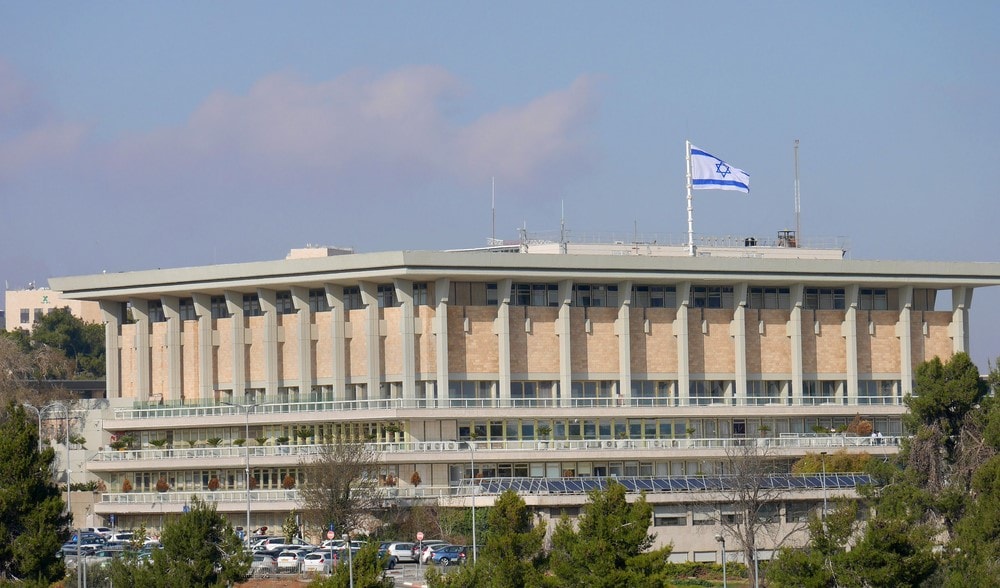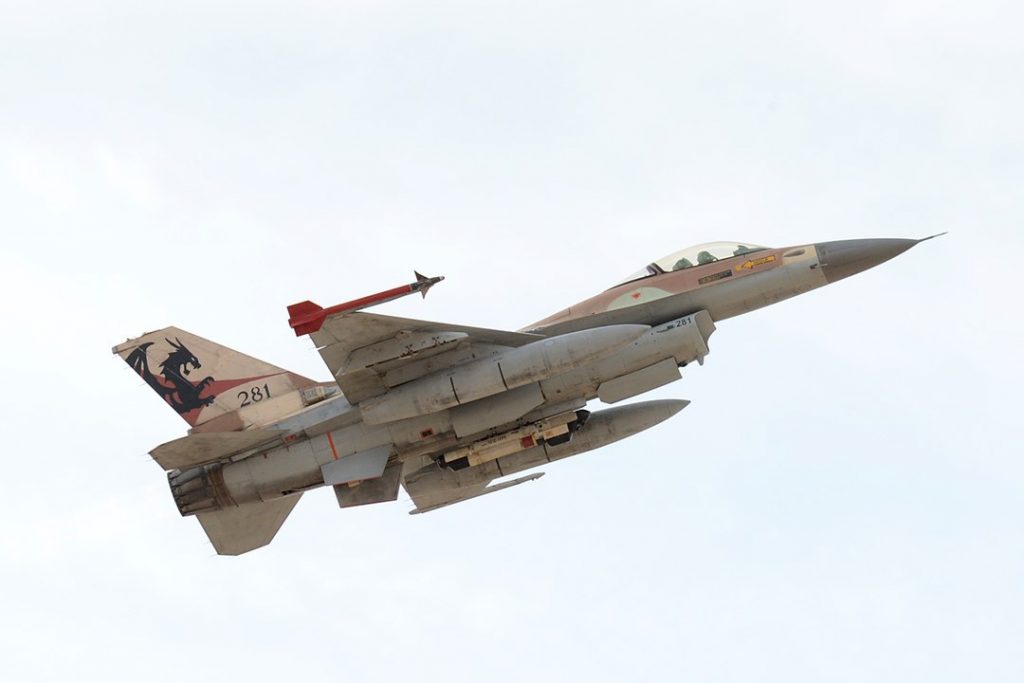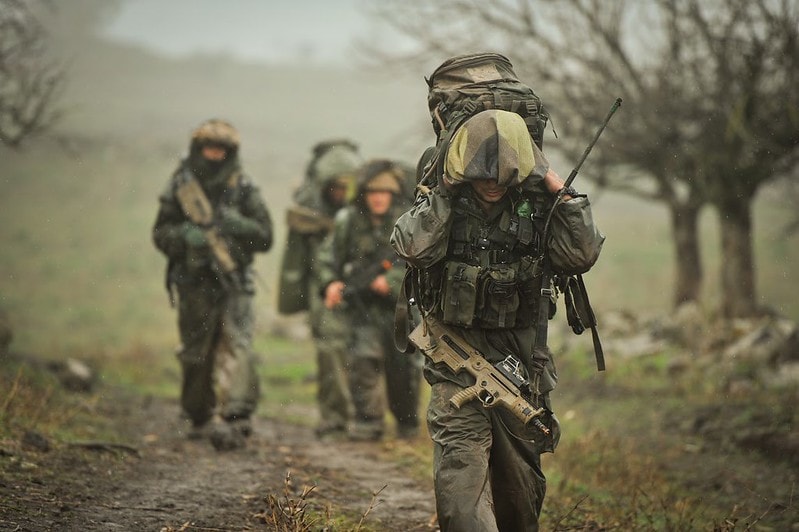
Israel faces a potential regional war that will be more intense and destructive than past conflicts, an extensive study says. A military clash will likely pit the IDF against enemy forces from Lebanon, Syria and Iraq, and could escalate into fighting inside Iran.
Israel’s Institute for National Security Studies assembled a team of defense experts to produce an in-depth analysis of the growing threat. The think tank’s study offers what may be the most detailed description to date of Israel-Iran war scenarios.
A chapter dedicated to the precision-missile threat remains classified and was submitted to defense officials, N12 News reported.
The study was composed by INSS managing director Brig. Gen. (res.) Udi Dekel, senior INSS research fellow Lt. Col. (res.) Orna Mizrahi, and military and strategic affairs expert Yuval Bazak.
The expert team says that conflict could erupt as a result of friction between the IDF and Iran’s proxies in Lebanon or Syria. However, Israel or Iran may also initiate a war under certain conditions. For example, a preemptive IDF assault to neutralize Hezbollah threats, or a surprise attack by Tehran.
One way or another, a military clash will feature unprecedented violence and destruction. If it spirals out of control, an armed conflict could trigger a regional war fought on several fronts.
Israel under fire
A regional war with the Iran axis will pose an extreme challenge to the IDF and to Israel’s home front, the INSS says. The expert team estimates that a conflict will erupt with little advance notice or possibly without any warning. Below are the highlights of the massive assault Israel is likely to face:
During the war, Israel will be hit with unprecedented firepower from multiple directions. The study predicted that Hezbollah will fire over 1,000 missiles daily, including dozens or hundreds of precise munitions [more up-to-date estimates are even higher]. Long-range missiles may also be fired from Syria and possibly from Iraq.
Precision-guided missiles will target strategic military and civilian sites, including power stations, refineries, airports, army bases and air defenses. The experts expect the Iran axis to also fire at government buildings in Jerusalem and at IDF headquarters in Tel Aviv. [here’s more info on the expected missile assault on Jerusalem]

In parallel, unguided munitions will target Israel’s population centers along with precision missiles in order to overwhelm anti-missile batteries. Enemy forces will continue to pound the home front with barrages even if the IDF invades Lebanon, the study says.
Hezbollah will also mobilize its elite forces for commando raids into Israel, targeting both soldiers and civilians. Meanwhile, cyber attacks will hit critical infrastructure, with a focus on command and control systems and vital assets.
Israel’s economy will shift to a state of emergency and basic services such as water and electricity may be disrupted, INSS warns. The country’s seaports and airports will also operate at reduced capacity.
IDF war operations
The IDF’s initial challenge will be to call up and deploy its reserve forces for a multi-front war. In the first 48-96 hours of conflict, the army will focus on defensive moves before shifting to offensive operations, the study says.
The Air Force will spring into action on multiple fronts, initially focusing on ensuring air supremacy and taking out advanced missiles and launchpads in Lebanon and Syria. In parallel, the Navy will deploy to protect strategic maritime assets and keep sea lanes open.
Once it switches to offense, the IDF will aim to severely damage Hezbollah assets and capabilities in south Lebanon, the Beirut region and elsewhere. The army will also eliminate the group’s strongholds on the Golan Heights.
Moreover, Israel will destroy Lebanese infrastructure used to support Hezbollah’s war efforts, the study says.

In Syria, the IDF will strike to neutralize Shiite militia forces and infrastructure while also devastating Syria’s military industries. Israel should aim to finish the war quickly after gravely hurting Hezbollah and weakening the Iran axis as a whole, the study says.
INSS dedicates special attention to a potential IDF strike on Hezbollah’s precision project in Lebanon. The chances of a preemptive assault would grow dramatically if the group produces more than 500 precision-guided missiles, which would pose a severe threat to Israel’s strategic assets.
If Israel launches a preemptive strike it should aim for a brief conflict that ends in days, the study says. Given the high risk of escalation into a larger conflict, the army will have to put its ground forces on standby for invasion into Lebanon.
Large-scale war scenarios
A limited conflict can quickly escalate into a major clash, INSS says. One scenario is for Israel to initiate or be drawn into a broad military campaign that aims to destroy or greatly weaken the Shiite axis in Lebanon and Syria. To achieve this, the IDF will launch major operations that extend all the way to the Iraq border.
This will require a large IDF reserve call-up and intensive strikes to devastate the enemy’s missile systems and military infrastructure. The army will also seize strategic areas inside Lebanon as part of a defensive posture to disrupt Hezbollah raids into Israel.
The expert team says that this scenario may also require a deeper ground incursion into Lebanon, and possibly into Syria, to neutralize threats and end the war more quickly. However, Israel would run the risk of being drawn into a protracted conflict, the study warns.

The most extreme scenario explored by INSS is a lengthy regional conflict on numerous fronts. Such war would see the IDF expanding its operations into Iran. In this case, Israel should strive to achieve a fundamental strategic change in the region, the analysts say.
As part of an all-out campaign, Israel will aim to defeat the Iran axis in Lebanon and Syria while destroying strategic assets in Iranian territory. This scenario carries far-reaching military implications as the IDF would have to fight on at least four fronts, the study says.
In a full-scale regional war, Israel will also face ballistic and cruise missile attacks from Iran.
The army will call up its entire reserve force and Israel will adopt emergency measures in all areas of life. The IDF will also aim to execute a preemptive assault to minimize attacks on Israel’s home front. Moreover, Israeli forces will launch a rapid invasion deep into Lebanon that would threaten Beirut.
Given the diplomatic and military complexity of the conflict, Israel-US coordination will be of supreme importance, the study stresses. Israel will need supplies of military gear throughout the war, as well as US backing on the international stage. America will also play a key role in finalizing agreements to end the hostilities on terms favorable to Israel.


